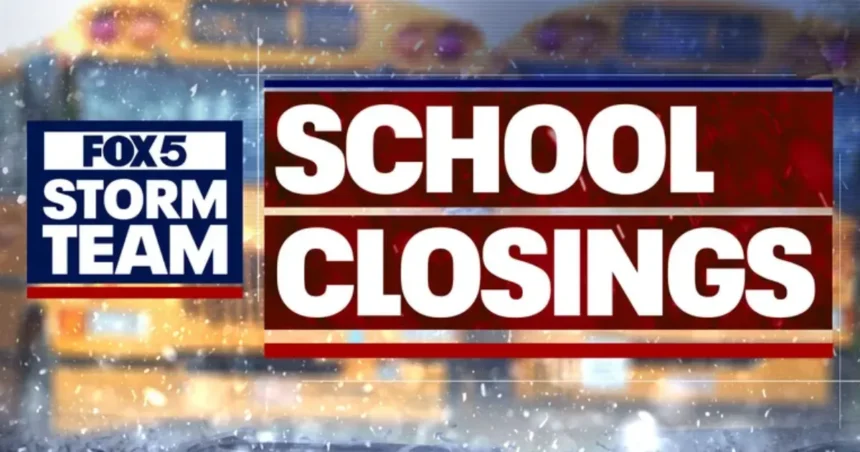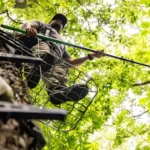Hey there, folks. If you’re waking up to a forecast full of snow, ice, or freezing rain, you’re probably not alone in wondering if school will be open tomorrow. Across parts of the United States, like the Midwest, South, and Northeast, schools are closing tuesday and wednesday due to winter weather. It’s that time of year when Mother Nature reminds us who’s in charge, and safety comes first. In this article, we’ll break it down simply—what’s happening, why it’s happening, and how to make the most of those unexpected days off. Whether you’re a parent juggling work, a kid excited for a snow day, or a teacher planning remote lessons, we’ve got you covered. Let’s dive in.
The Winter Storm That’s Shaking Things Up
Winter weather can turn a regular week upside down, and right now, a big storm system is moving through several states. Imagine this: heavy snow falling like confetti from the sky, roads turning into slippery slides, and winds that could knock over a snowman. That’s the scene in places like Central Georgia, Northeast Florida, and North Alabama, where forecasts predict a mix of snow, sleet, and freezing rain starting as early as Tuesday afternoon.
In Central Georgia, for example, schools are shutting down early to avoid the worst of it. The storm could bring up to a few inches of snow in the northern areas, with icy conditions making driving dangerous, especially for school buses. Meteorologists are calling it a “wintry mix,” which means it’s not just fluffy snow—it’s the kind that sticks to roads and creates black ice, the sneaky stuff that’s hard to see but super hazardous.
Down in Northeast Florida, it’s rare to see this kind of weather, but the storm is expected to hit hard enough to close schools Wednesday. Places like Jacksonville are bracing for possible snow flurries and icing on bridges and overpasses. And in North Alabama, a Winter Weather Advisory is in effect from Tuesday night through Wednesday morning, warning of hazardous travel that could disrupt everything from commutes to school routines.
These closures aren’t decided lightly. School officials, working with local weather experts and transportation teams, monitor conditions closely. They start checking roads as early as 4 a.m. and make calls by 5:30 a.m. at the latest. The goal? Keep everyone safe. After all, no math test is worth risking a slip on the ice.
Why Are schools are closing tuesday and wednesday due to winter weather? Safety First, Always
Let’s talk straight: schools close for winter weather because getting kids to and from class safely is the top priority. Picture a yellow school bus trying to navigate a road covered in ice—it’s like driving on a skating rink. Even if the snow looks pretty from your window, the real danger is in the travel.
The main reasons boil down to a few key things. First, road conditions. Snow and ice make highways and side streets treacherous. In areas like Horry County, South Carolina, officials are opting for eLearning days to avoid any risks. Second, building safety. Freezing temperatures can cause pipes to burst or power lines to fail, leaving schools without heat or electricity. Third, the health of students and staff. Extreme cold can lead to frostbite or hypothermia if kids are waiting at bus stops in sub-zero winds.
Historically, these decisions save lives. Remember the big storms in past winters? In 2022, a similar system caused widespread closures in the South, preventing accidents. Today, with climate patterns bringing unpredictable weather, schools are even more proactive. They use tools like radar apps and emergency response teams to stay ahead.
But it’s not just about today—closures affect the whole week. Extracurricular activities, like sports practices or club meetings, get canceled too. In Nassau County, Florida, all after-school events are off for Tuesday and Wednesday. This gives families time to hunker down, but it also means makeup days later or remote learning to keep education on track.
How Schools Decide: The Behind-the-Scenes Process
Ever wonder who flips the switch on a school closing? It’s not just one person staring at a snow globe. Most districts have an Emergency Response Team made up of transportation experts, safety officers, facilities managers, and even nutrition staff. They meet multiple times a day during a storm threat, reviewing forecasts from the National Weather Service.
Take Fulton County Schools in Georgia as an example. Their team checks everything from road plowing schedules to building utilities. If winds are too high or snow accumulation hits a certain level—say, 3 inches—they pull the trigger. Decisions are announced on school websites, apps, and local news first, often before 6 a.m.
In some places, like Milwaukee Public Schools, they have dedicated weather hotlines. Parents get texts or emails, and kids might even learn about it during morning announcements if it’s a delay. For private schools or smaller districts, principals might make local calls, but they coordinate with city emergency services.
Technology helps too. Apps like Remind or SchoolMessenger blast alerts instantly. And in rural areas, where buses travel long distances, they might close individual schools if only certain roads are bad. It’s all about balance—education matters, but so does keeping the community safe.
Affected Areas: Where the Closures Are Happening
This storm isn’t hitting everywhere the same way, but it’s widespread. In the Southeast, Central Georgia is ground zero. schools are closing tuesday and wednesday due to winter weather. Stratford Academy and Dublin City Schools are among those switching to at-home learning.
Heading east to Northeast Florida, it’s a big deal because snow is rare there. Duval County Schools are closed Wednesday, with early dismissals Tuesday. Baker and Nassau Counties are fully shut down both days, canceling everything from town halls to practices. St. Johns County is holding steady for now, but they’re watching closely.
Up north in Alabama, North Alabama schools like those in Cullman and Etowah Counties are delaying openings by two hours Wednesday, while others go remote. Community colleges like Bevill State are starting late too. And don’t forget the Midwest—states like Minnesota and Wisconsin often see these patterns, with FOX 9 tracking real-time updates.
Even if your area isn’t listed, check local news. Storms can shift, and what starts as a warning in one state can spill over. Tools like the Emergency Closing Center for Chicago or KSDK for St. Louis help track it all.
Making the Most of Snow Days: Fun and Productive Ideas
Okay, so school’s out—now what? Snow days can be a blessing or a headache, depending on your view. For kids, it’s pure joy: building forts, sledding, or just cozying up with hot cocoa. But parents might stress about work, and teachers about lost class time. Here’s how to turn it into something positive.
First, embrace the fun. Bundle up and head outside if it’s safe—make snow angels or have a family snowball fight (gently, of course). If the weather’s too wild, indoor games work wonders. Board games, movie marathons, or baking cookies can create memories that’ll last longer than any lesson plan.
For learning, many districts now use eLearning days. In Horry County, Wednesday is virtual school, with assignments posted online. Parents, help your kids log in and stay on track. Apps like Khan Academy or Duolingo make it feel like play. Teachers, use this time to prep fun modules, like a virtual snow science experiment.
Health-wise, stay warm. Layer clothes, eat hearty meals, and watch for cabin fever. A little routine—reading time or chores—keeps things balanced. And for working parents, check community resources. Some areas open warming centers or offer free childcare during storms.
Remember, these days build resilience. Kids learn about weather patterns, safety, and family bonding. It’s not just a break; it’s a real-life lesson.
The Bigger Picture: Impacts on Education and Daily Life
School closures ripple out beyond the classroom. For education, it means makeup time—maybe shorter spring break or added summer days. But with remote options, learning doesn’t stop completely. Studies show kids bounce back quickly, especially with parental support.
Economically, it affects parents who can’t work from home. Businesses might close too, as seen in past storms. In Alabama, the advisory warns of travel disruptions that could slow deliveries and commutes.
Communities pull together, though. Neighbors shovel walks, schools become shelters, and local governments plow roads nonstop. It’s a reminder of how weather unites us.
Long-term, climate change is making these events more frequent. Warmer air holds more moisture, leading to heavier snow in some spots. Schools are adapting with better tech and plans, but it’s a challenge.
Table: schools are closing tuesday and wednesday due to winter weather.
To make it easy to scan, here’s a table of some key school districts affected by the current storm. This is based on the latest announcements—always verify with your local district, as things can change.
| Region/State | School District/School | Tuesday Status | Wednesday Status | Notes/Source |
|---|---|---|---|---|
| Central Georgia | Academy for Classical Education | Remote Learning | Remote Learning | Potential snow; makeup later. |
| Central Georgia | Monroe County Schools | Alternative Learning Day | To be determined | Monitoring overnight conditions. |
| Central Georgia | Crawford County Schools | At-Home Learning | At-Home Learning | Full closure for safety. |
| Central Georgia | Stratford Academy | Remote Learning | Remote Learning | All activities canceled. |
| Central Georgia | Dublin City Schools | At-Home Learning | Normal (pending update) | Early decision for Tuesday. |
| Northeast Florida | Duval County Schools | Early Dismissal | Closed | After-school events off Tuesday. |
| Northeast Florida | Nassau County Schools | All After-School Canceled | Closed | Full Wednesday shutdown. |
| Northeast Florida | Baker County Schools | Normal (with caution) | Closed | Superintendent announcement. |
| Northeast Florida | St. Johns County Schools | Normal | Normal | Operating as usual. |
| North Alabama | Cullman City Schools | Normal | 2-Hour Delay | Winter mix expected. |
| North Alabama | Etowah County Schools | Normal | 2-Hour Delay | Advisory in effect. |
| North Alabama | Boaz City Schools | Normal | 2-Hour Delay | Remote options available. |
| South Carolina | Horry County Schools | Normal Schedule | eLearning Day | Extracurriculars rescheduled. |
| Virginia | Newport News Public Schools | Potential Early Dismissal | Closed if needed | Transportation checks at 4 a.m. |
| Minnesota/Wisconsin | Various (e.g., Minneapolis area) | Check Local | Check Local | Real-time updates via FOX 9. |
This table covers major spots, but hundreds more could be affected. For your area, search “[your city] school closings” on a news site.
Staying Informed and Prepared for Next Time
Knowledge is power during weather events. Sign up for alerts from your school district—texts are fastest. Follow local news like WVTM 13 in Alabama or WRIC in Virginia for updates. Apps like Weather Underground or the FEMA app give personalized warnings.
Prep ahead: Stock non-perishables, have flashlights, and keep cars fueled. Teach kids what to do in a storm—stay inside, avoid downed wires. For remote days, ensure devices are charged and internet is reliable.
If you’re a teacher, share resources with families. Parents, use this as a teachable moment about weather safety. And everyone, support those helping—like plow drivers or emergency crews.
Wrapping It Up: Snow Days Are What We Make Them
schools are closing tuesday and wednesday due to winter weather. is inconvenient, but it’s a smart call for safety. From Georgia’s remote setups to Florida’s rare snow alerts, communities are handling it with care. Use these days to connect, learn, and stay safe. Spring will come soon enough, melting away the white stuff and getting everyone back to routine. Until then, stay warm, check those updates, and maybe enjoy a snowball or two. If things change in your area, local sources have the scoop.







